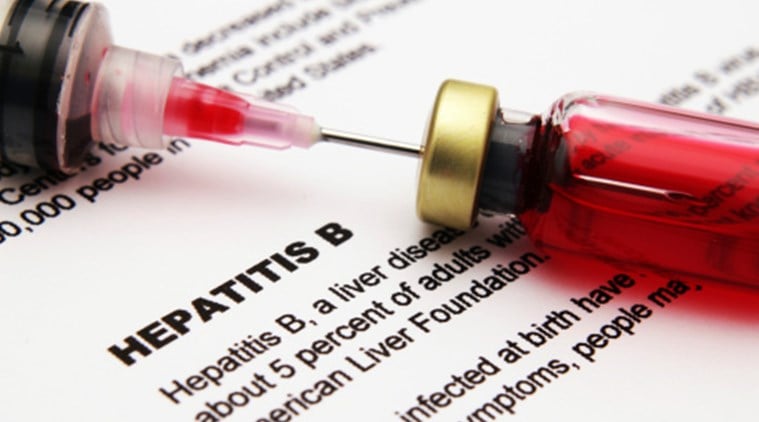World Hepatitis Day 2019: Infants and young children are at the greatest risk of developing chronic (lifelong) infection if they are exposed to HBV. Approximately 30-50 per cent of children, and 90 per cent of babies are not able to fight off the virus and will develop chronic infection.

By Dr V Sam Prasad
World Hepatitis Day 2019: Hepatitis B is one of the most common serious viral infections in the world. Horizontal transmission in childhood and mother to child transmission of HBV are the most common mode of transmission. Therefore, worldwide, most people with Hepatitis B were infected with the virus as an infant.
According to the World Health Organisation (WHO), an estimated two billion people have been infected with more than 275 million living with chronic hepatitis B, which can lead to developing cirrhosis, liver failure and liver cancer. HBV is the cause of 60 per cent to 80 per cent of worldwide Hepatocellular Carcinoma (HCC). Approximately 600,000 people die every year due to the disease.
The hepatitis B virus is highly infectious – 50 to 100 times more infectious that HIV. The virus can survive for up to one week outside of the body. Hepatitis B virus (HBV) infection is a significant health problem in India. Since India has one-fifth of the world’s population, it possibly accounts for a large proportion of the worldwide HBV burden.
Infants and children at greater risk
Most healthy people who are infected as adults are able to fight off the infection and clear the virus from their blood. This may take up to six months and they are infectious during this time. Unfortunately, infants and young children are at the greatest risk of developing chronic (lifelong) infection if they are exposed to HBV. Approximately 5-10 per cent of adults, 30-50 per cent of children, and 90 per cent of babies are not able to fight off the virus and will develop chronic infection. Chronically infected people can pass the virus onto others (even if they have no symptoms) and are at increased risk for developing liver disease and liver cancer later in life.
Also Read| How to manage your pregnancy diet during gestational diabetes
Many people with Hepatitis B do not have symptoms and do not know they are infected. If symptoms occur, they can include fever, feeling tired, not wanting to eat, upset stomach, throwing up, dark urine, grey-colored stool, joint pain, and yellow skin and eyes. The only way to know if you have Hepatitis B is to get tested. Blood tests can determine if a person has been infected and cleared the virus, is currently infected, or has never been infected. The good news is that the HBV infection is both preventable by a very effective vaccine as well as treatable with oral drugs.
The Hepatitis B vaccine has been incorporated in the current Universal Immunisation Program; the first dose is given as early as possible after birth, preferably within 24 hours for preventing perinatal HBV transmission and subsequent three doses of vaccine at 6, 10 and 14 weeks. Even within this time duration, the earlier it can be administered, the better. If, for some reason, the birth dose is not administered within 24 hours, it should still be administered as soon as it is possible and not omitted. Hepatitis B immunoglobulin (HBIG) may provide some additional protection in situations where risk of transmission is particularly high – i.e. babies born to mothers with hepatitis B who also have detectable HBeAg and/or high viral load.
Precautions during pregnancy and breastfeeding
As per national guidelines, screening of pregnant women for HBsAg is to be done in areas where institutional deliveries are < 80 per cent to ensure their referral for institutional delivery for birth dose Hepatitis B vaccination. It is important to note that administration of the vaccine to pregnant women with HBV provides no benefit either to the mother or the baby.
Hepatitis B is not spread through breastfeeding, sharing eating utensils, hugging, kissing, holding hands, coughing, or sneezing. Unlike some forms of hepatitis, Hepatitis B is also not spread by contaminated food or water. As per the national programme, a mother who suffers from the condition may breastfeed her baby, unless there is an exuding injury or disease of the nipple or surrounding skin. The advantages of breast-feeding far outweigh the risk, if any, of transmission of Hepatitis B to a baby who has received the vaccine.
All pregnant women with HBV should be evaluated for the need of treatment for Hepatitis B and any associated liver disease and given advice about prevention of transmission. Only a proportion of those with hepatitis B virus infection (pregnant or otherwise) need treatment.
There is a need to organise HBV awareness and sensitisation programme with various groups of the society especially among women. Through these educational campaigns efforts should be made to address stigma reduction on Viral Hepatitis. There should also be Hepatitis B immunisation camps for dropout children in the community.
(The writer is Country Director, Aids Healthcare Foundation, India Cares.)
Source: Read Full Article
